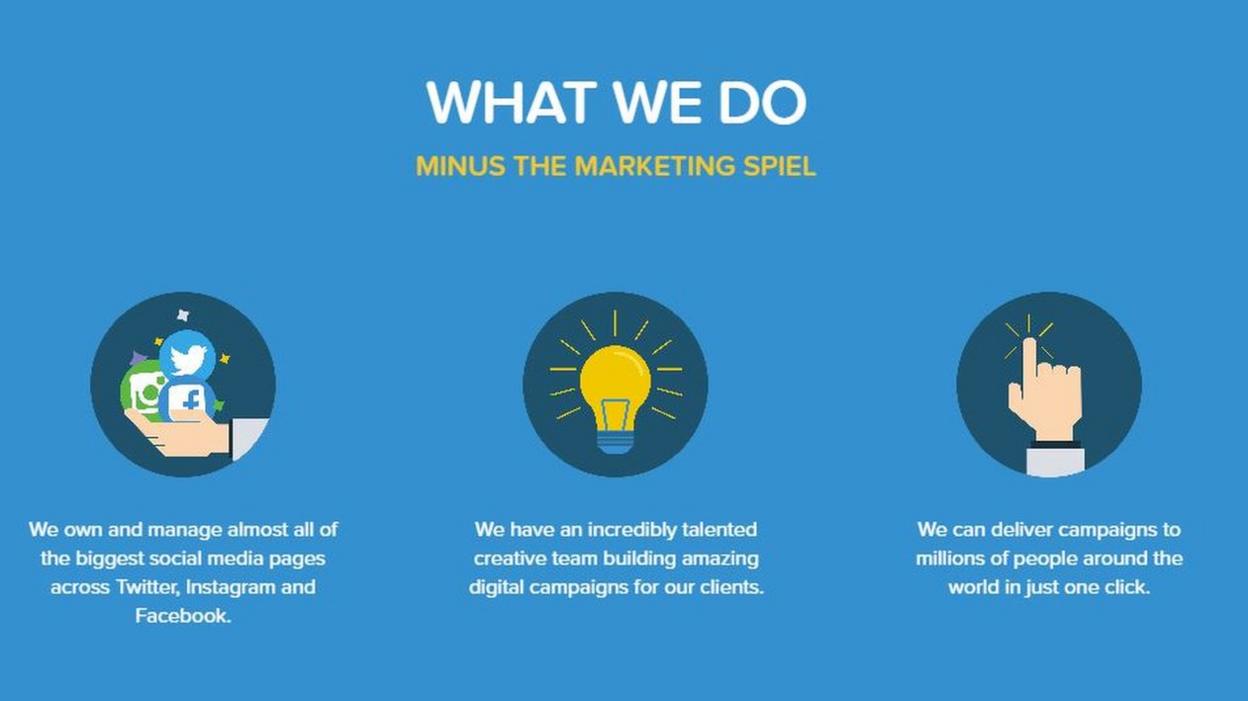Playing with trust - does a social media marketing hoax work?
- Published
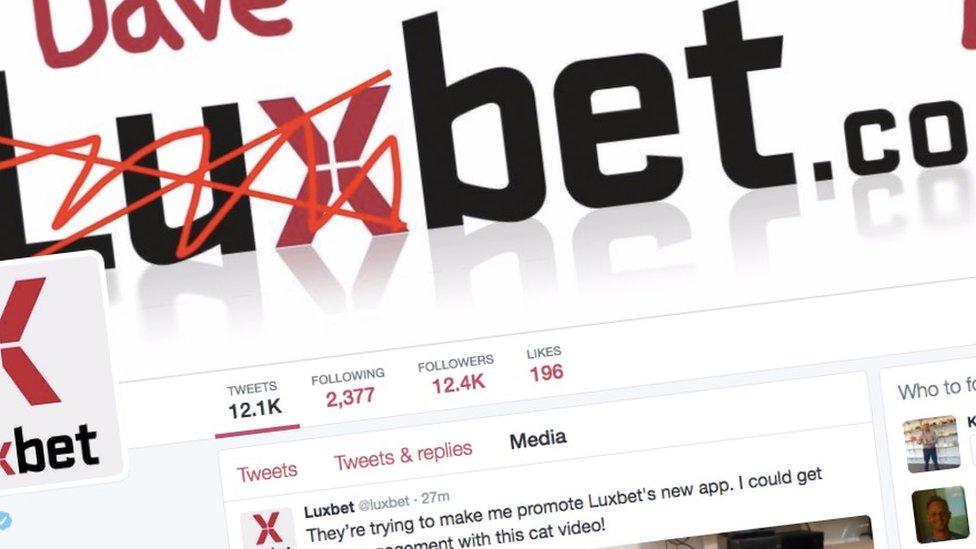
Imagine a social media manager getting fired but, on leaving taking the Twitter login and going rogue, slamming the firm on their very account.
That's what happened on Thursday morning in Sydney, external - or so it seemed.
It turned out to be an elaborate advertising hoax, which not everyone fell for - throwing up the question of just how effective such campaigns really are.
In this latest case it was a ploy to get the company trending and boost awareness of the release of a new app launched on that very day.
The made-up social media manager who was fired from his made-up job went by the name of Dave - and #SaveDave and #DaveGetsFired did indeed go viral in Sydney on Thursday morning.
Fictional Dave bad-mouthed his former company, ridiculing the way in which they wanted him to promote said app.
He also revealed that he could still use the company account and offered to send free pizza to people who got in touch with him. Whereas the story wasn't real, the pizza very much was.

Fictional Dave offered to send pizza to people who got in touch
While some people believed the story and expressed their support for the ranting runaway, many immediately smelled a hoax.
The reaction was mixed - from amusement and respect for the campaign ...
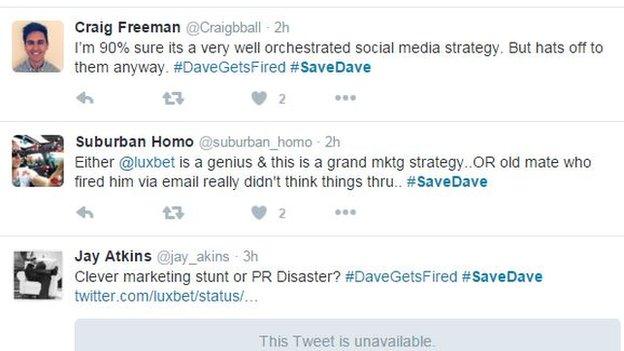
... to people saying how much they "hate" any such marketing on social medial, doubting that it will translate into any gains for the company behind it.
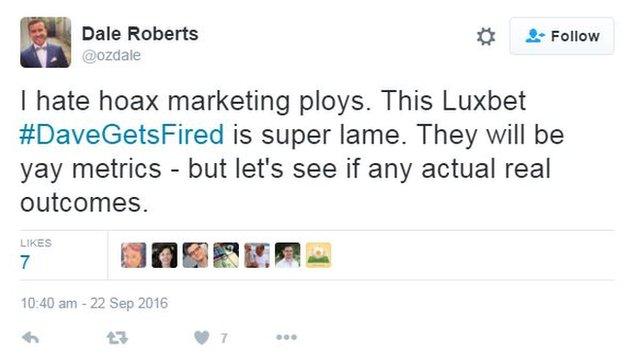
Using social media for marketing campaigns means walking a fine line, it's a medium to be handled with great care if you don't want things to backfire.
"A hoax of this type where you are misleading people is actually a semi-suicidal form of using social media," Thomas Crampton, global managing director from the advertising firm Ogilvy & Mather told the BBC.
Playing with core values
"Social media are media of trust. And if you undermine that trust you're undermining one of the core values of the medium."
He explains that in fact it has taken people a while to develop that very trust. When companies then use it to intentionally take you for a ride it tends not to go down too well with people.
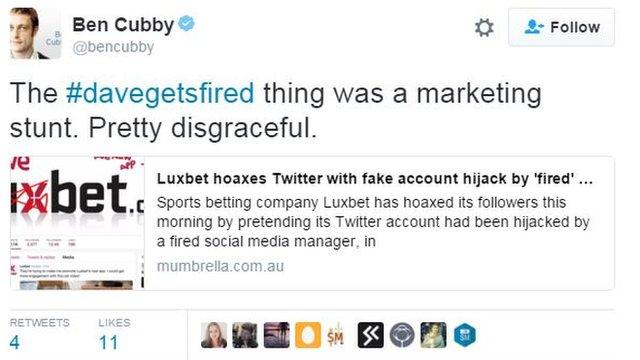
And in most major examples of that kind, the cases got a lot of attention not because they succeeded but because of the complaints and anger over them.
"I think people appreciate a clever campaign when it is transparently that - it's a campaign," says Phil Simmonds, VP Asia Pacific with advertisers McCorkell.
The 'Man in the jacket'
"When people have their emotions or belief systems manipulated, they don't like it and it can backfire spectacularly. The 'Man in the jacket' was a huge one, and people fully fell for it."
In the case of the 'Man in the jacket', a clothing company in Australia had a girl post a video on Youtube talking about how she had allegedly met the love of her life in a cafe but only had his jacket - no contact details. Reaching out to the public to help her find that man, this Cinderella-looking-for-her-Prince-Charming was in fact advertising for the jacket and the clothing firm behind it.
"There was huge backlash when it turned out to be an engineered campaign," Mr Simmonds explains.
And he was not the only one whom Dave reminded of that jacket hoax.
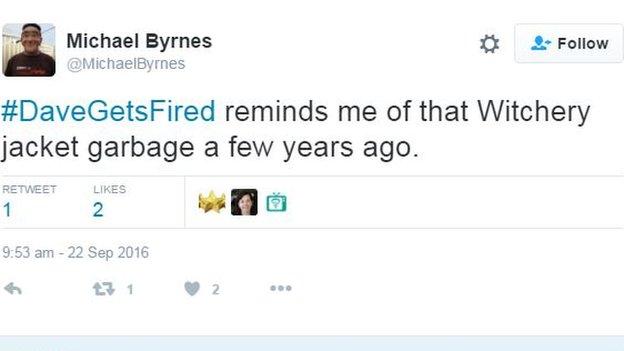
Honesty as crisis management
In fact, there are many examples where the exact opposite of a hoax turned out to be the thing that worked: extreme sincerity and honesty.
It is a strategy that usually works best in a moment of crisis, when a company can come forward to apologise.
"It's when you are in a bad situation and you're trying to cash in on the sincerity or the belief that somebody has in you," says Mr Crampton. "So you're counting on sincerity to bail you out."
Classic examples include the US airline JetBlue chief executive apologising for chaos and long delays during a winter storm or the chief executive of KFC Malaysia apologising, external for an incident in which a customer was assaulted by a member of staff in one of its branches.
'Welcome to the internet'
The success or failure of marketing strategies on social media are crucial. "Nowadays it's fundamental," says Mr Crampton. "Social media is where we spend a huge portion of our lives - on Facebook, Twitter, or WeChat. And the ability of a company to engage in those media is key for them as a brand."
The days where marketing could look at social media as merely 'nice to have' are over. And playing with the trust of your audience tends to not turn out well. In fact, even if you wanted to do that, it gets harder and harder with people getting more and more savvy in spotting your ploy.
Indeed, there was quite a bit of mockery and ridicule for those who did in fact fall for Dave's Twitter saga.
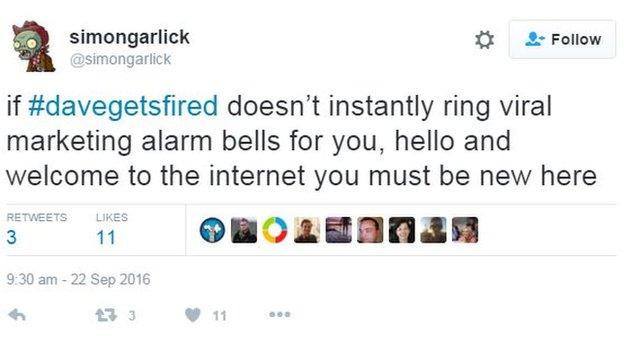
- Published30 August 2016
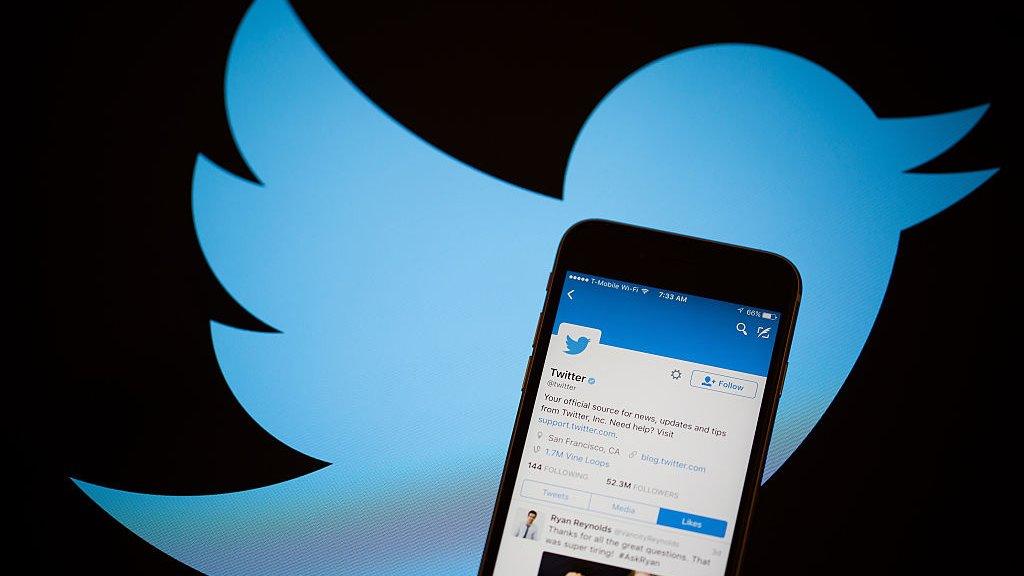
- Published31 August 2016

- Published11 August 2016
